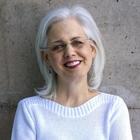
Southard has a postgraduate degree in Creative Writing from the University of Antioch (Los Angeles) and was awarded a Non-Fiction Narrative Fellowship at the Norman Mailer Center (Massachusetts). His book Nagasaki: Life After Nuclear War has won the 2016 Literary Peace Prize and the 2016 J. Anthony Lukas Prize. In it, he narrates the brutal odyssey of five adolescents who lived on August 9, 1945 in the port city and carries out the best dissection we have ever read about the media manipulation suffered by both countries and the reactions to an act of extreme violence disguised as vital necessity. He further argues that the official narrative, which is believed to be the second attack that succeeded in convincing Japan to surrender, is inaccurate. An essential factor, usually forgotten, that caused the Japanese surrender, was the decision of the Soviet Union to fight alongside the allies. Southard's work has appeared in the New York Times, the Los Angeles Times, Politik, and the Lapham’s Quarterly. Southard has taught nonfiction seminars at the Piper Writers Studio at the University of Arizona and the University of Georgia, and has directed creative writing programs for incarcerated youth and at a federal prison for women near Phoenix. In addition, she is the founder and artistic director of the dramatic company Essential Theater in Phoenix.





